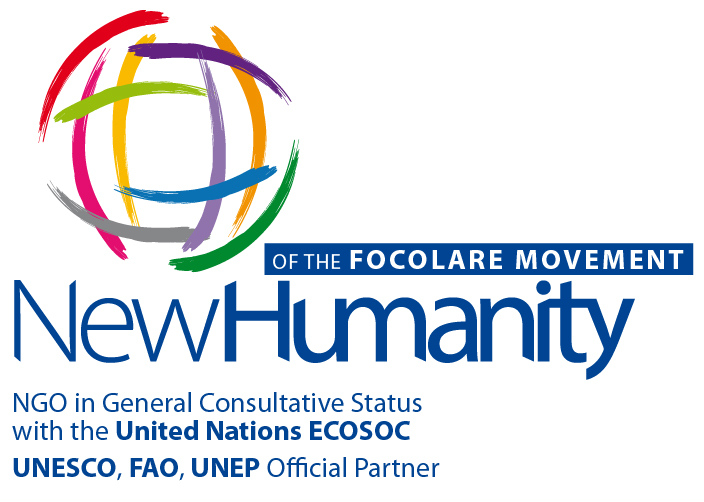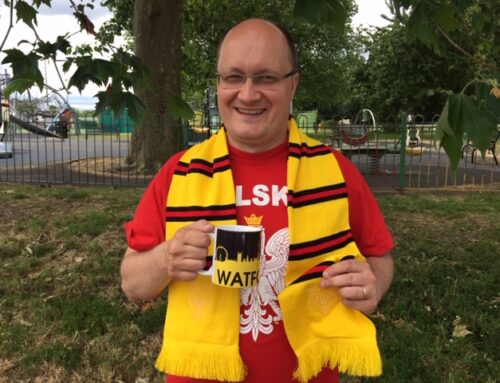Source: livingcitymagazine.com

Recently, an experience convinced me that American identity has more to do with the future than with the past.
A couple of years ago, I agreed to help the founders of an immigrant community project in Iowa. They wanted to build a replica of a typical village in their country of origin in Southeast Asia.
The founders had set up the project, formed a nonprofit village association and held elections for the village board. Then they turned the project over to others to complete. Unfortunately, neighbors from the adjoining subdivision gained control of the village board, changed the bylaws, stopped having elections and blocked further construction. The founders were frozen out. A friend of mine asked me if I would meet with them to see what could be done, so I agreed and we set up a series of meetings.
I tried to get to the point by proposing quick solutions, but they kept arguing among themselves. I was almost ready to give up when I had the idea to stop trying to impose a quick fix and start listening to them and trying to understand them. Then they started listening to each other too, and we began a constructive dialogue.
We proposed a neutral professional mediator, but the village board rejected our offer, giving us no choice but to hire another attorney specialized in non-profit law. He determined that the board had lost its authority: it had violated both state law and its own corporate charter by ending the board elections. Since the board had neglected to schedule an annual meeting, the founders could schedule an annual meeting to elect a new board and regain legal control of their association.
They did so, and the meeting began in chaos with people shouting at each other in two languages. I wondered if the two sides could ever work together. Since they were trying to figure out how to restart the association, I suggested that they hold elections according to the original legally recognized bylaws. That they could agree upon, and the shouting was finally followed by a happier noise of votes and tallies of a new election. Soon a new board was elected, and everyone sat down to a delicious potluck dinner.
This situation seemed to me rich with ironies and lessons about American identity.
First, the founders of the immigrant group had reenacted the history of the American founding, and their “American” neighbors had played the role of the British while they were trying to establish their rights.
These new immigrants seemed to me no different than earlier settlers who founded New Amsterdam, New Sweden, New Jersey and all the other “new” settlements in the U.S. named after the old country. Iowa has a Czech village, German settlement, Dutch and Danish windmills, all built by immigrant communities to preserve the memory of the old country while embracing the new.
The longtime “American” neighbors played the role King George III and the British Parliament had when they interfered with colonial settlement in the 1700s, in that they became part of the village board to block the immigrant group from developing the village.
Second, the neighbors needed a lesson in history much more than the immigrant village founders, who were working so hard to preserve their roots by constructing their own historical village.
They were stuck in the narrow identity of threatened homeowners. They had forgotten not only their own history as immigrants, but also the principles that encouraged their ancestors to immigrate, giving them a promising future in the American republic. The most essential of these principles is open political dialogue.
Yale University political historian Alissa Ardito has defined a republic as that form of government based on dialogue, which requires citizens to rise above self-interest. The Roman statesman Cicero had another essential definition of a republic: “not just any collection of human beings brought together in any sort of way, but a large number bonded together by an agreement with respect to justice and a partnership for the common good.”
According to Cicero, what makes us citizens of a republic (and, by extension, Americans) is not happenstance, such as geography, language, or race. Nor are we citizens of a republic by virtue of the individual choices we make, such as political affiliation, occupation or creed.
The village founders understood this. They left behind the known quantity of their old country, where they were defined by language, geography and race, to build a new identity based on things less certain but full of possibilities. They even reached out to the neighbors to try to form a partnership to address the dispute.
The neighbors, however, did not see the founders as partners and were concerned not with justice but only with self-interest. This attitude seemed not only biased, unfair and shortsighted, but ultimately un-American.
The attitude of the neighbors was a mystery to me until I remembered the attitude I myself had brought to the plight of the founders. Feeling somehow superior to the founders, I assumed I could easily solve their problem if they would just listen to me. Not until I took on the suffering of the founders as if it were my own was I able to find an answer: I had to abandon my superior attitude and simply listen to them in the hope that together we could find the solution.
I knew much more than the association founders about the American system, its laws and customs, yet I almost failed in my sincere attempt to help them find justice. Why?
Evolutionary social psychology theorizes that human beings evolved an attitude of bias and exclusion as a defense mechanism for living in small tribal groups. Whether we call it biology, human nature or original sin, this trait gives us an inborn predisposition to feel superior to and be suspicious of those who appear different from us.
It might seem like a waste of time to fight against this natural suspicion. Why not give in to biology? Basing our political community on shared territory, language, race or creed would be a faster, surer and easier foundation than dialogue.
Those characteristics, however, represent not unity but uniformity. The writers of the Constitution started from a different place and chose a different path: E pluribus unum — from many to one. Their document made an “agreement with respect to justice and a partnership for the common good,” and invoked the help of Divine Providence to make it work. The Constitution is a declaration of hope for unity and an act of faith in humanity.
Humanity no longer lives in isolated tribes, competing for scarce water and food sources. Civilization, both ancient and modern, has demanded more of humanity than suspicion and self-interest. Likewise, America is based not so much on what we have been, or even what we are, but what we can be. Remembering this takes constant effort, but it is an effort that must be made: the effort of dialogue. Dialogue is the lifeblood of any republic; therefore, the health of our American republic can be measured by the state of its political dialogue.
Dialogue requires not only discussion of issues but also respect for our fellow citizens. It requires listening. It takes time. It can be difficult, frustrating, exasperating. It can seem like a waste of effort. It might be tempting to give up or impose a quick fix by looking for a different foundation, but would be less American and less human if we gave in to this temptation.
Perhaps the truly “superior” Americans are those who, through a divine spark, make themselves inferior by becoming nothing in front of others for the sake of dialogue. Only when I finally started listening to the association founders, forgetting all my supposed advantages, could we embrace dialogue and look to the future together as fellow Americans.
John Chesser is an attorney and management consultant in Des Moines, Iowa.



